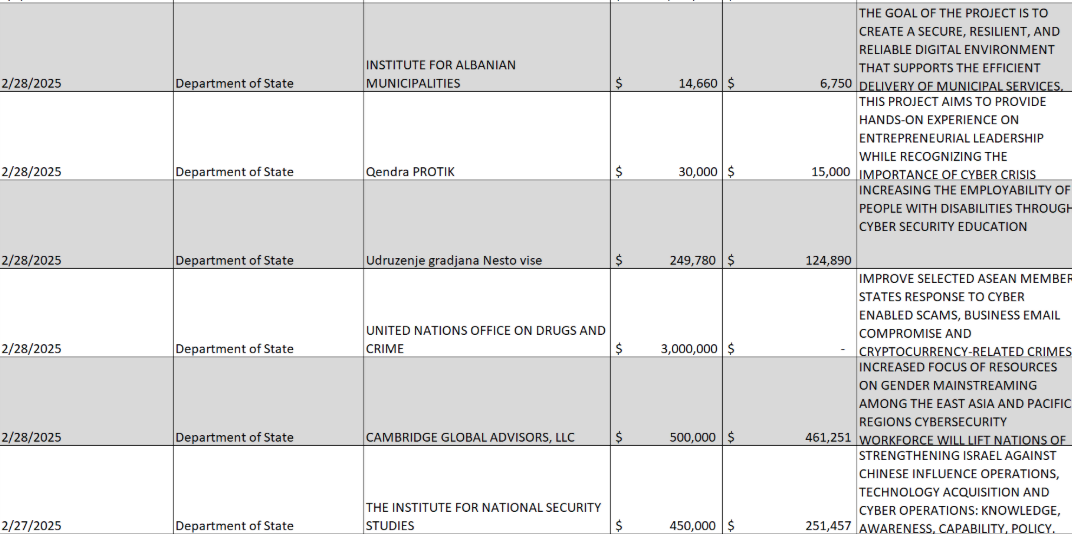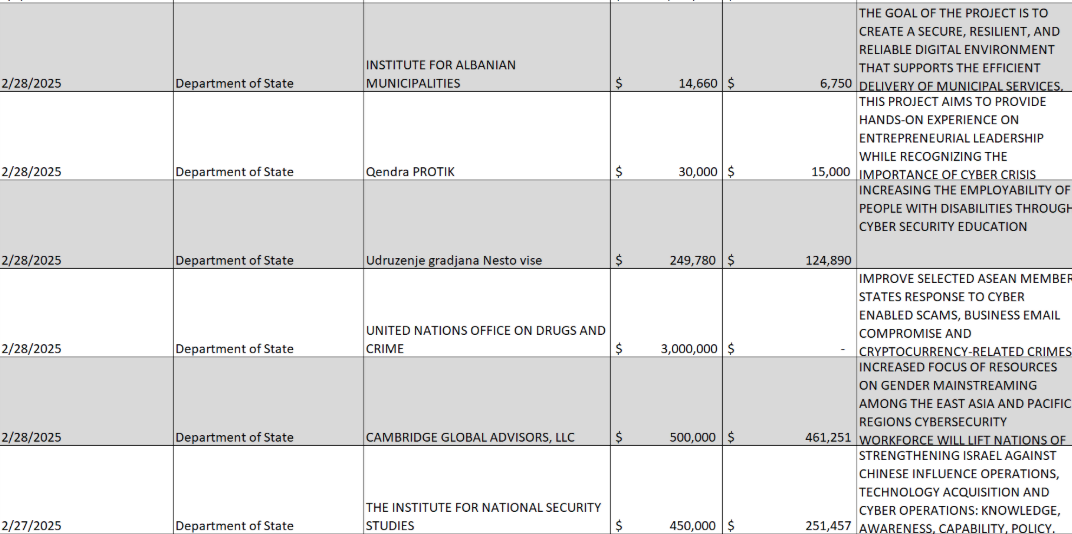DOGE killed $324 million in grants for cybersecurity diversity, global partners
US is the top investor in global spyware, Kenyan authorities accused of installing spyware on filmmakers' phones, GOP senators press Zuckerberg on WhatsApp whistleblower's claims, Wyden accuses Microsoft of negligence in Ascension attack, CISA says CVE should remain public, much more


Metacurity is a reader-supported publication that requires significant work and non-trivial expenses. We rely on the generous support of our paid readers. Please consider upgrading your subscription to support Metacurity's ongoing work. Thank you.
If you're unable to commit to a subscription today, please consider donating whatever you can. Thank you!
Consistent with the nature of US government budget cuts across the Trump administration generally, according to DOGE.gov, DOGE workers slashed hundreds of millions of cybersecurity-related grants aimed at helping underrepresented cybersecurity workers or aiding under-resourced US allies.
As the table below spells out, from February through May, DOGE eliminated cybersecurity-related grants (i.e., grants that specifically reference cybersecurity) worth $325 million, with listed potential "savings" to the US government of $253 million. However, it’s unclear exactly how DOGE calculated the savings figures.
A number of the canceled grants came from the elimination of Digital Equity Act grants issued by the Department of Commerce’s National Telecommunications and Information Administration. These grants were designed to address “a lack of infrastructure in rural or urban communities, making affordable connectivity devices more accessible to individuals in need due to income or background, and establishing digital literacy and training resources of existing and emerging consumer technologies.”
Another group of cybersecurity grants cancelled by DOGE is part of the sweeping cancellation of approximately 700 scientific research projects funded through the National Science Foundation.
Not all the diversity-related grants canceled focused on gender, racial, or ethnic equity. Some of the canceled grants focused on assisting older Americans in coping with the rising tide of cyber scams. For example, one canceled $5,000,000 grant issued to the State University of New York at Buffalo was for a program to equip older adults with tools to recognize online deception and awareness.
Finally, another cluster of canceled grants was a string of small-dollar State Department initiatives to help international allies in their efforts to develop cyber defenses. For example, DOGE cut a $35,000 grant to the Pacific Links Foundation to train Vietnamese educators and youth on cutting-edge technical topics, including cybersecurity, AI, data privacy breaches, and fintech.




